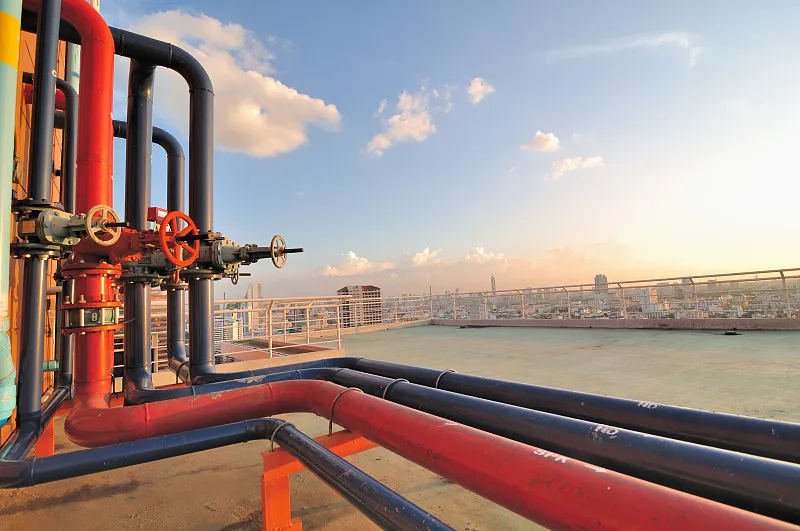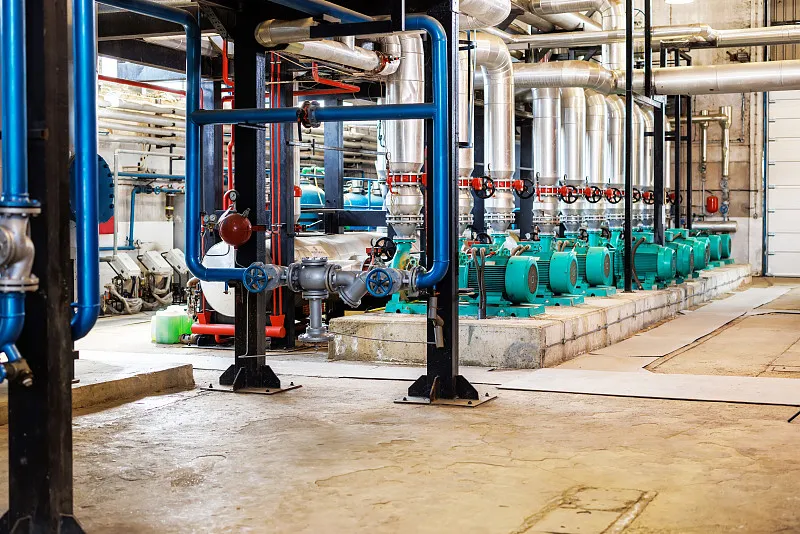1. What Are PPR Pipe?
PPR Pipe are a type of thermoplastic pipe made from Polypropylene Random Copolymer. These pipes are used for various plumbing, heating, and cooling applications. PPR pipes are known for their excellent performance in both hot and cold water systems, making them an ideal choice for residential, commercial, and industrial applications.
Unlike traditional materials like PVC or metal pipes, PPR pipes are resistant to high temperatures, corrosion, and scale buildup. They are also lightweight and easy to install, which makes them a popular choice for modern plumbing systems.
2. Why Choose PPR Pipe in Indonesia?
Indonesia’s climate, which is tropical and humid, can present challenges for plumbing materials. Traditional materials such as PVC or metal pipes are prone to wear, corrosion, and cracking over time. PPR pipes offer a more durable and long-lasting alternative.
The country’s growing construction industry, both in residential and commercial sectors, has increased the demand for PPR pipes. These pipes are ideal for use in water supply systems, heating systems, and even irrigation networks, making them a versatile solution for a range of applications.
3. Key Benefits of PPR Pipe
Durability
PPR pipes are renowned for their longevity. These pipes can last for 50 years or more when installed properly. They are resistant to wear and tear caused by external factors, including UV rays and pressure fluctuations. This high durability translates into fewer repairs and replacements, saving both time and money in the long run.
High Temperature Resistance
One of the main advantages of PPR pipes is their ability to withstand high temperatures. PPR pipes can handle water temperatures up to 95°C (203°F), making them an excellent choice for both hot water systems and radiant heating systems. This is a major benefit over traditional PVC pipes, which tend to warp or crack under high temperatures.
Corrosion Resistance
Unlike metal pipes, PPR pipes do not corrode. This makes them ideal for use in areas with high humidity, where metal pipes can rust or degrade quickly. Additionally, PPR pipes are resistant to the build-up of mineral deposits, which can clog up pipes over time.
Eco-friendly
PPR pipes are made from recyclable materials, making them an environmentally friendly option. Unlike PVC or other non-recyclable materials, PPR pipes do not release harmful chemicals into the environment. This makes them a sustainable choice for eco-conscious builders and homeowners.
Cost-Effectiveness
Though PPR pipes may have a higher upfront cost compared to PVC pipes, they are more cost-effective in the long run. Their durability, ease of installation, and low maintenance costs make them an economically wise choice. Additionally, PPR pipes are energy-efficient, as they have good thermal insulation properties, which helps in reducing heating costs for hot water systems.
4. Top PPR Pipe Brands in Indonesia
When selecting the best PPR pipes in Indonesia, the quality of the brand plays an important role in determining the longevity and performance of the piping system. Here are some of the top PPR pipe brands available in Indonesia:
Brand 1: Wavin PPR Pipe
Wavin is a well-known global brand in the piping industry, and their PPR pipes are widely used in Indonesia. Wavin PPR pipes are known for their high quality, durability, and excellent resistance to temperature changes. The brand offers a comprehensive range of PPR pipes and fittings suitable for residential, commercial, and industrial applications.
Brand 2: GEBERIT PPR Pipe
Geberit is another leading name in the plumbing industry with a strong presence in Indonesia. Their PPR pipes are known for their reliable performance and are often used in commercial and industrial projects. Geberit offers a variety of pipe sizes and accessories to cater to different installation needs.
Brand 3: Aquatherm PPR Pipe
Aquatherm is a German-based company that produces premium PPR pipes that are trusted worldwide. Their pipes are known for their durability and long lifespan. Aquatherm’s PPR pipes are also resistant to high temperatures, making them suitable for hot water systems. They are commonly used in both residential and commercial buildings in Indonesia.
Brand 4: Supreme PPR Pipe
Supreme PPR pipes are widely available in Indonesia and are known for their affordable price range without compromising on quality. Supreme offers a wide variety of PPR pipes and fittings for residential plumbing and industrial applications.
Brand 5: Astral PPR Pipe
Astral PPR pipes are designed for high-performance applications, offering excellent resistance to heat and pressure. The brand is trusted in Indonesia for its premium-quality PPR pipes that can withstand harsh conditions, making them an ideal choice for water supply systems.

5. Choosing the Right PPR Pipe
When selecting PPR pipes for your project in Indonesia, consider the following factors to ensure optimal performance:
PPR Pipe Standards
Look for PPR pipes that meet international quality standards such as ISO 15874. These standards ensure the pipes are manufacture to handle the demands of both hot and cold water systems and have the necessary pressure ratings.
Pipe Sizes and Diameters
PPR pipes come in various sizes and diameters. It’s important to choose the appropriate size based on the water flow requirements of your system. Consult a professional plumber to determine the correct diameter for your needs.
PPR Pipe Fittings and Accessories
PPR pipes require compatible fittings and accessories such as elbows, tees, couplings, and valves. Ensure that the fittings you choose are made from the same material and are of high quality to prevent leaks and ensure the durability of your system.
6. Applications of PPR Pipe in Indonesia
Residential Plumbing Systems
PPR pipes are commonly use for residential water supply systems due to their ability to handle both hot and cold water efficiently. They are also use for floor heating systems and underfloor heating applications.
Commercial and Industrial Applications
In commercial and industrial settings, PPR pipes are use for their resistance to corrosion and high temperature. They are suitable for applications in factories, warehouses, and office buildings.
Irrigation Systems
In agriculture, PPR pipes are use for irrigation systems due to their durability and resistance to chemicals. They are an excellent option for farmers in Indonesia who require efficient and long-lasting water delivery systems.
Hot and Cold Water Systems
PPR pipes are an excellent choice for both hot and cold water distribution systems. Their resistance to heat makes them ideal for hot water applications, while their flexibility and durability ensure they can handle cold water systems efficiently.
7. Installation and Maintenance Tips
Installation Tips
- Proper Cutting and Welding: Ensure that the pipes are cut accurately and welded properly using a heat fusion technique. This ensures a secure and leak-free connection.
- Clean the Pipe Ends: Before joining, clean the pipe ends thoroughly to remove dirt or debris that may interfere with the fusion process.
- Proper Pressure Testing: Always test the system for pressure after installation to ensure there are no leaks.
Maintenance Tips
- Check for any signs of damage, such as cracks or leaks, and repair them immediately.
- Ensure the system is free of any build-up of mineral deposits, especially in hard water areas.
- Periodically inspect pipe connections and fittings to make sure they are secure.
8. Common Issues and How to Solve Them
Leaking Joints
Leaking joints can occur if the welding process is not performe correctly. Make sure that the fusion process is done properly and that the pipe and fittings are the correct size.
Cracking or Breakage
If a PPR pipe is subjecte to extreme pressure or external impact, it may crack. To avoid this, ensure the pipe is installe correctly and avoid placing heavy objects on it.
Blockages
Mineral deposits or foreign materials can clog PPR pipes over time. Regular maintenance and cleaning of the pipes can prevent this issue.
9. Conclusion
PPR pipes are an excellent choice for plumbing and water systems in Indonesia, offering long-lasting durability, resistance to high temperatures, and ease of installation. With the right selection of brand, pipe size, and fittings, PPR pipes can serve a wide range of applications, from residential water supply systems to industrial heating systems.
Choosing the right PPR pipe is key to ensuring a reliable and efficient water delivery system. The brands listed above are some of the best options available in Indonesia, known for their quality and performance. When installed and maintained properly, PPR pipes can provide a cost-effective, durable, and sustainable solution for your plumbing needs.
Frequently Asked Questions (FAQs)
- What is the difference between PPR pipes and PVC pipes?
- PPR pipes are more durable, resistant to high temperatures, and do not corrode, unlike PVC pipes, which are more prone to damage from UV exposure and temperature fluctuations.
- Are PPR pipes suitable for both hot and cold water systems?
- Yes, PPR pipes are designe to handle both hot and cold water systems and can withstand temperatures up to 95°C.
- How long do PPR pipes last?
- With proper installation and maintenance, PPR pipes can last for over 50 years.
- Can PPR pipes be used for outdoor applications?
- Yes, PPR pipes can be use outdoors, but they should be protecte from UV exposure to prevent degradation.
- How do I install PPR pipes?
- PPR pipes are typically installe using a heat fusion method, where the pipe and fitting are heate and fuse together to create a strong, leak-free joint.


















